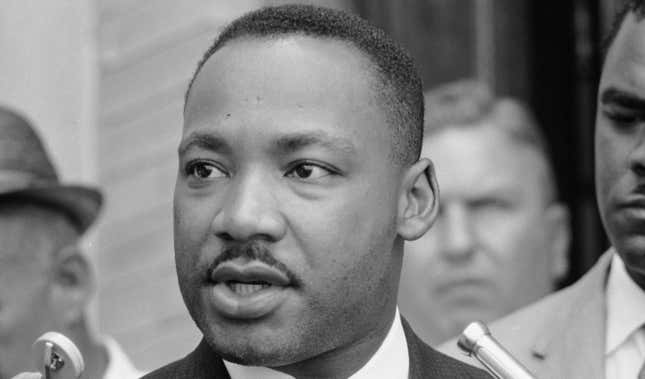
Before you settle into your federally mandated day of action (or day of chillin,’ if that’s your groove), allow me to bestow upon you an inconvenient truth: The Martin Luther King Jr. national holiday is one of the worst things that happened to the man’s legacy.
Let’s be clear: King was a radical.
Go to a MLK celebration these days and you will hear Black politicians using this holiday as a platform to run for office. Most white pastors use the day as a time to get in a pulpit and talk to their mostly white congregations about King’s dream about racial harmony, ignoring all the other things he wrote and said about his disappointment with how white people embodied Christianity.
Or worse yet, they will ask a Black minister to do it, and a Black minister will tap dance for the white listeners, allowing them to leave the white church, drive home to their white communities and feel like they are a friend to Black people.
But it needs to be said again: King was a radical.
About how America treats the poor, the man said, “there must be a better distribution of wealth and maybe America must move toward a Democratic Socialism.” He also asked, “What good is having the right to sit at a lunch counter if you can’t afford to buy a hamburger?” And he said, “Of all the forms of inequality, injustice in health care is the most shocking and inhumane.”
None of that will be said at your local MLK celebration.
Toward the end of his life, when thinking about what he accomplished and seeing how white America was treating Black people, King said, “I’ve come to believe we are integrating into a burning house,” making it plain that he was not as optimistic about race relations in May 1967 as he was when he gave his “I have a dream speech in August 1963.
Given the radicality of his thought, I wonder if King would recognize the man America valorizes on January 20. To understand why King is portrayed as a gentle dreamer instead of an angry prophet, we have to understand what concession were made to get the King hoiliday in the first place.
The first time a bill to have a King holiday was proposed in Congress, it was introduced by Representative John Conyers, a Democrat from Michigan, and Senator Edward Brooke, a Republican from Massachusetts in 1979. That bill failed by five votes. A bill was finally passed in 1983, but not before Republicans opposed the bill, openly asking whether King was important enough to receive such an honor.
To get enough votes from the Republican controlled Senate and a signature from President Ronald Regan, advocates for the King National holiday were forced to highlight his unifying rhetoric to the detriment of his actual thoughts on things like universal healthcare and economic justice.
We don’t honor the real Martin Luther King, Jr. anymore. We honor the King that does not offend white people. That is why this holiday is one of the worst things to happen to his legacy.
There is a danger in reducing any person’s life and work to a sound bite or any single speech or essay. To fully appreciate a thinker as complex as King, we must consider the totality of his work. Not just something he said one day in August.

